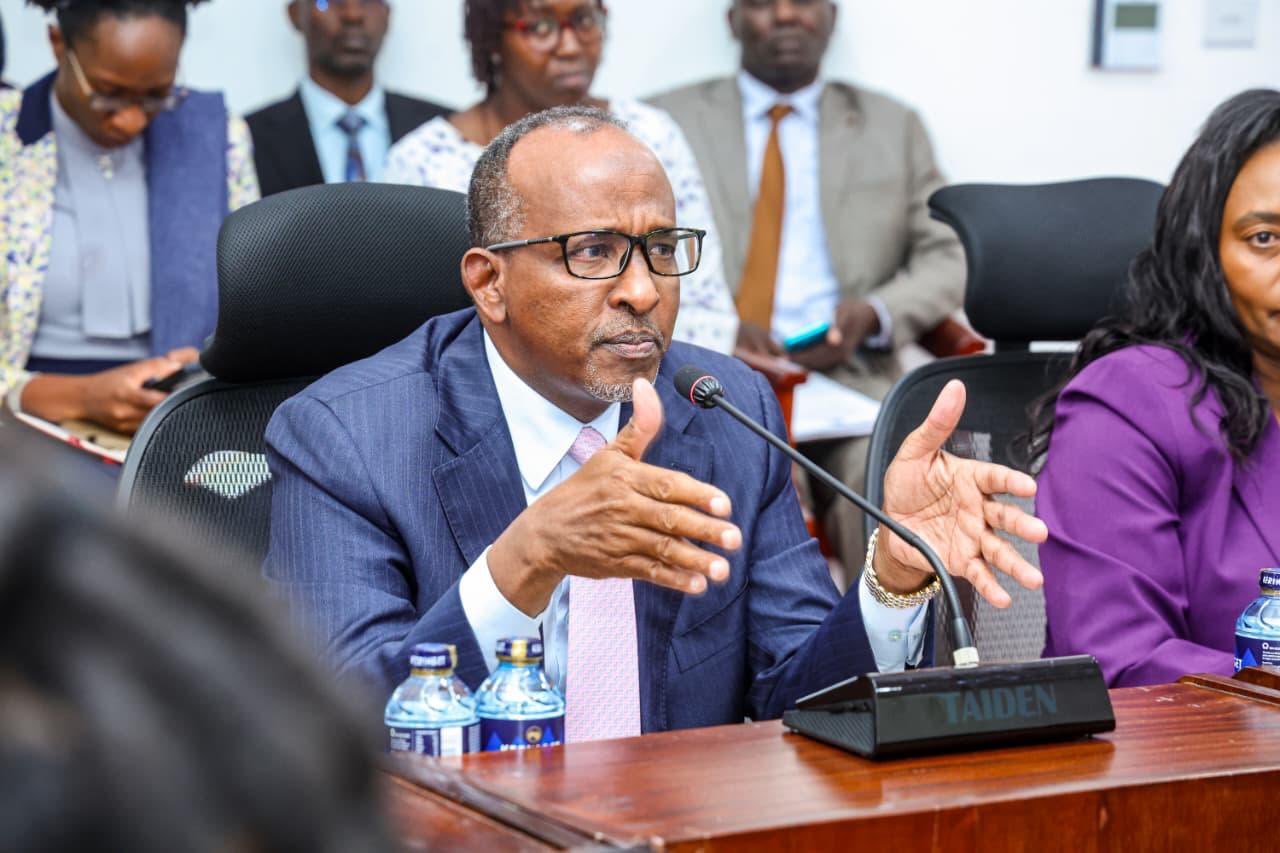
The government has expressed frustration over the inability to effectively enforce the ban on shisha smoking, despite its well-documented health risks.
Health CS Aden Duale said efforts to protect Kenyans from harmful substances such as shisha have been hampered by the absence of a legal framework to support enforcement.
“The ban on shisha was based on a presidential directive. Former President Uhuru Kenyatta signed the order that banned shisha,” Duale told the Senate Delegated Legislation committee.
However, enforcement has been a tall order due to the lack of legislation to sustain a charge in court against offenders.
“We arrest people and take them to court, but they cannot be charged because there is no law,” he said, urging Members of Parliament to enact legislation to either ban or regulate shisha.
Duale described shisha as a cocktail of dangerous substances—including cocaine, heroin and other hard drugs—with dire health consequences.
He said shisha smoking poses serious health risks, including increased chances of respiratory infections, heart disease, cancer and the transmission of infectious diseases when pipes are shared.
He appeared before the Senate committee during deliberations on the proposed Graphic Health Warnings for Tobacco Products.
Although the government introduced the Public Health (Control of Shisha Smoking) Rules, 2017, via a Gazette Notice, prohibiting the importation, manufacture, sale and use of shisha, enforcement has remained weak. Many shisha outlets continue to operate freely.
Duale asked Senators to leverage the Tobacco Control (Amendment) Bill, currently under consideration, to include provisions outlawing shisha.
He also called for laws to regulate the use of miraa and muguka, substances he said pose health risks similar to tobacco products.
Duale told the committee that powerful individuals have attempted to pressure the Ministry of Health to allow harmful tobacco products into the country.
“The Ministry of Health is fully behind the Tobacco Control Bill. We’ve submitted our proposed amendments and are calling on all Senators to support the Bill,” he said.
Mombasa Senator Mohammed Faki had earlier pressed Duale on what the government was doing to control the use of miraa, muguka and shisha, saying they are just as harmful as the tobacco products targeted by current regulations.
Duale responded that the ministry had proposed stronger enforcement mechanisms and heavier fines for violators of tobacco sale conditions.
“Since I’m not looking for votes, I will personally lobby for the passage of the Tobacco Control Bill. We cannot allow Kenyans to continue dying from cancers linked to long-term use of harmful tobacco products,” he declared.
The CS also noted that the ministry cannot produce graphic health warnings for certain harmful products like shisha because these are not formally defined in law for distribution or manufacture.
He urged the Senate to expedite amendments to the Tobacco Bill.
“The biggest threat is the importation of flavoured tobacco products that trick users into thinking they are safe. Yet these products are behind many cancer cases. We must do everything possible to stop them,” Duale emphasised.
Nominated Senator Catherine Mumma, who is sponsoring the Tobacco Control Bill, criticised the Tobacco Control Board, saying it has been ineffective.
“That agency is moribund. It has failed in its role to safeguard Kenyans from harmful tobacco products. Taxpayers should not continue funding a body that isn’t delivering results,” Mumma said.
Nominated Senator Joyce Korir echoed the call for stricter laws, warning that flavoured tobacco imports are luring unsuspecting Kenyans into harmful consumption patterns.
















